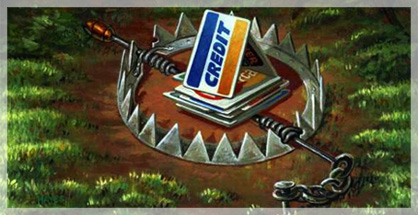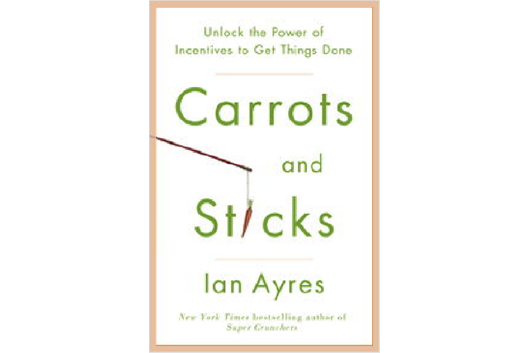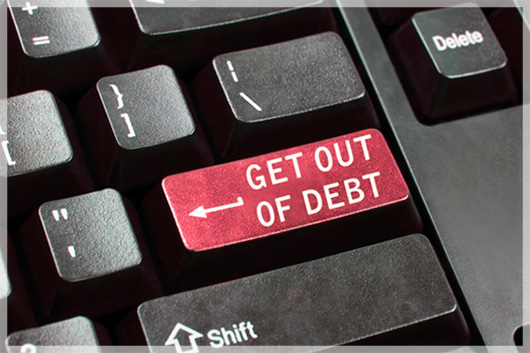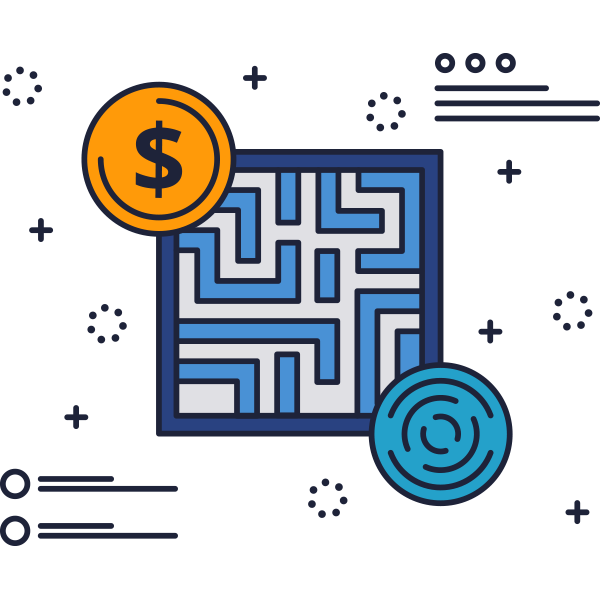Getting out of debt

If you’re like the average American, you’re most likely in debt.
In fact, if you own a home and recently went to college, you could have up to $200k in debt right now. Here’s a breakdown of what that can look like:
- Credit card debt: $15,422
- Mortgage debt: $149,782
- Student loan debt: $34,703
And those numbers are just the averages. Many people have even more.
Debt’s a problem because it’s a downward spiral — get deep enough and it’s not only hard to get out of debt but it gets easier and easier to get further into debt.
And when you’re in debt, things that make it easier to spend and spend — like credit cards — are like crack in the hands of a hardened addict.
So, how do you start to get out of debt? Well, that’s what our mission is all about today, and it begins with a short lesson in philosophy…

The philosophy of money
Quite simply, money is a means to an end. It’s a way to get what we want (food, clothes, shelter, the occasional iPad, etc.).
Spending it is a decision to enjoy the present at the expense of the future (<– go ahead, read that again). Spend money now and you won’t have it later.
Getting out of debt is all about living within your means. And that’s true for a young couple just starting out and also true for multimillionaires.
The First Step…
Getting out of debt isn’t a sprint – it’s a marathon – and the first step to getting out of debt is recognizing that there is a problem.

Controlling your finances means reprogramming your money behavior: how you spend, how you save, how you shop, and even how you think about money.
Instead of radically changing your spending and completely turning down your money dial, consider getting a better understanding of your own finances.
Before making a budget, start by tracking where your money is going. LearnVest’s Money Center is a really good tool to track your monthly spending and automatically see how much you’re spending on food, entertainment, utilities, etc.
Before you begin cutting the fat out of your budget, you need a good way to visualize where the fat is and where you can afford to cut.
Reduce spending on big-ticket items
In his book The Noisemakers, Why They Keep Losing Your Money and How to Make it Stop, Steve Orr makes a calculation that if you just cut out your daily Starbucks fix, you can grow into a millionaire.
Well, to reach that number you’d need to cut out your daily energy shot, muffin, and lunch, too.
Oh, and you’d need to invest that directly into the stock market.
Why to focus on big-ticket items and not your daily coffee
It’s an interesting analysis and a nice idea — that just by cutting out Starbucks from your diet, you too could become a millionaire!

The problem is that real life doesn’t work that way. Normal people don’t immediately take the money they save from skipping the coffee line and plow it into the stock market.
It isn’t a binary decision to a) buy a coffee vs. b) invest $4.63 in the stock market. That money gets spent elsewhere, in other ways.
So, is it a good idea to cut out Starbucks?
Well, if you’re looking to scale back spending, you can actually get a grande latte for less than $1 (this lesson isn’t sponsored by Starbucks, by the way) by brewing it yourself.
The point is that you’ll be better served in your quest to conquer your spending NOT by cutting out the little things but by focusing on bigger drains on your budget.
Reduce spending by all means but you don’t have to cut everything out — sometimes substitutes for the real thing help also.
Focus instead on smartly reducing the rate you pay on your mortgage, your rent, travel expenses, the next 60” LED TV — big ticket items. This has more immediate impact.
Hold Yourself Accountable
One of the biggest reasons people fail in their financial planning is from a lack of accountability.
There’s no football coach ready to chew you out and make you run laps and do pushups if you slack in improving your spending habits.
To get out of debt, you need to be held accountable.
That’s human nature. We need a creative mix of incentives and punishments to get us to solve our own problems.
Carrots and sticks: Helping you reach your financial goals
In fact, Yale Professor Ian Ayres wrote a book Carrots and Sticks: Unlock the Power of Incentives to Get Things Done that describes how accountability can be used to achieve goals from cutting-edge research in behavioral economics.

“There are dozens of different choices on how to structure contractual commitments, but getting the right incentive is not just about setting the right price. Other people matter. Mindfulness matters. Activation matters,” Ayers wrote.
To get things done, you need to find a way to ensure you make a change.
JoAnneh Nagler found a way to hold herself accountable. Just a few years ago, she had around $80,000 in credit card debt.
Her recovery plan held her responsible by creating a set of free savings accounts for things like travel and car repair. If she wanted to spend, she’d have to make a deposit first from her paycheck. She got out of trouble, paid off her debt, and wrote a book about her debt-free savings plan.
Reducing spending isn’t the only way

Many people mistakenly focus ONLY on their spending when they’re trying to extricate themselves from debt.
That’s a mistake — they sweat the small stuff and don’t focus on the bigger picture. They squeeze and squeeze and squeeze excess out of their budgets until they can’t squeeze anymore.
They’ve deprived themselves of so much and in the course of things, made themselves miserable.
Well, there’s another way to skin this budget cat.
And that’s by focusing on how much money you’re bringing home every month.
Get out of debt by increasing your earnings
Instead of skipping your 5th latte of the month, what if we told you there were numerous ways you could be bringing home $1k, $2k and even $5k per month (hey, we’re not even selling anything)?
You have skills that can help you bring in more money than you’re currently earning.
No, don’t go out and quit your job just yet. We’re talking about moonlighting, freelancing, working on the side…
Through job marketplaces like Odesk or Guru.com or even through your existing contacts, you can find someone out there looking for some business help from someone with skills just like yours.
Can you think of a business contact who could use what you’ve spent the past few years learning and honing to help her grow her business? What’s that worth to you?
You won’t start out bringing in mucho dinero right away but getting your first $1 by putting yourself out there creates positive momentum.
